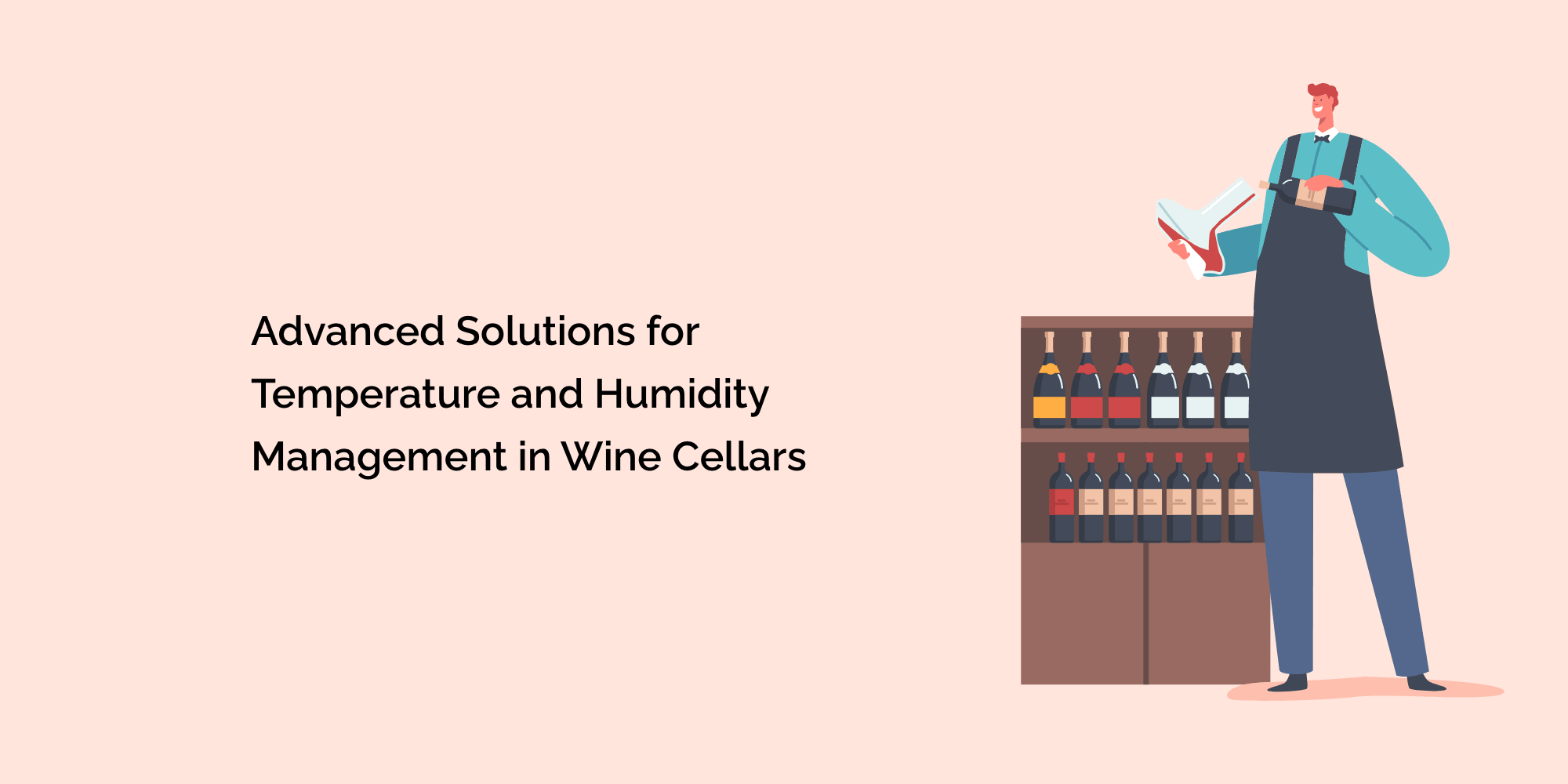For wine enthusiasts and collectors, maintaining optimal storage conditions is essential to preserve their prized wines' quality and aging potential. Temperature and humidity control are critical factors in creating the perfect environment for wine cellars. This detailed blog post will explore advanced solutions for temperature and humidity management in wine cellars. These cutting-edge technologies and techniques offer precise control, remote monitoring, and enhanced efficiency, ensuring the utmost care for your valuable wine collection.
Climate Control Systems: Achieving Precision and Consistency
- Importance of Climate Control Systems: Climate control systems are integral to maintaining stable temperature and humidity levels in wine cellars. These advanced systems provide precise control and consistency, creating an environment that promotes optimal wine aging and preservation.
Features and Benefits of Climate Control Systems:
- Temperature Regulation: Climate control systems offer accurate temperature control within the desired range, ensuring minimal fluctuations and precise adjustments.
- Humidity Management: These systems monitor and adjust humidity levels, preventing excessive moisture or dry conditions that can compromise the integrity of the wine.
- Remote Monitoring and Control: Many climate control systems provide remote access, allowing you to monitor and adjust cellar conditions from anywhere using a smartphone or computer.
- Data Logging and Analysis: Advanced techniques can record temperature and humidity data over time, enabling analysis and trend tracking for better cellar management.
- Energy Efficiency: Climate control systems are designed to be energy-efficient, optimizing energy consumption without compromising performance.
Intelligent Monitoring and Automation: Streamlining Wine Cellar Management
- Internet of Things (IoT) Technology: IoT technology enables intelligent monitoring and automation in wine cellars, revolutionizing how wine enthusiasts manage their collections. These advanced systems offer enhanced control, real-time data tracking, and automated functions.
- Remote Monitoring and Alerts: Smart monitoring systems allow wine collectors to remotely monitor temperature and humidity levels, providing peace of mind even when away from the cellar. These systems can send alerts or notifications in case of significant deviations or anomalies.
- Automated Functions: Some IoT-enabled systems can automate temperature adjustments, humidity regulation, and even wine inventory management. This automation streamlines cellar management, reduces human error, and ensures optimal conditions for your wines.
Passive Cooling Systems: Harnessing Natural Cooling Methods
- Underground Cellars: Underground cellars take advantage of the natural thermal properties of the earth to provide a stable and relaxed environment for wine storage. These cellars can maintain consistent temperatures year-round, reducing reliance on mechanical cooling systems.
- Passive Cooling Techniques: Passive cooling techniques like natural ventilation and insulation help maintain temperature stability without active mechanical components. These methods can minimize energy consumption while still achieving the desired temperature range.
Thermal Insulation: Preserving Ideal Cellar Conditions
- Importance of Thermal Insulation: Proper insulation is essential for minimizing heat transfer and maintaining consistent temperature levels in wine cellars. High-quality insulation materials and techniques help preserve ideal cellar conditions, reducing the need for excessive cooling or heating.
- Insulation Materials: Various insulation materials can be used in wine cellars, including foam insulation boards, spray foam insulation or mineral wool insulation. Each material has its own thermal properties and installation considerations, so consult professionals to determine the best option for your cellar.
Humidification and Dehumidification Systems: Precise Humidity Control
- Humidification Systems: Humidification systems ensure proper moisture levels in the cellar, preventing corks from drying out and reducing the risk of oxidation. These systems introduce controlled amounts of moisture into the air to maintain the desired humidity range.
- Dehumidification Systems: Dehumidification systems help remove excess water from the cellar, preventing mold growth and minimizing the risk of label damage. These systems regulate humidity levels and protect your wine collection from the harmful effects of high humidity.
Certainly! Here are some frequently asked questions (FAQs) about temperature and humidity management in wine cellars:
What is the ideal humidity range for wine cellars?
The recommended humidity range for wine cellars is between 50% and 70%. This range provides sufficient moisture to keep corks in good condition without encouraging excessive mold growth. Humidity below 50% can result in dry pins, potentially leading to wine oxidation, while levels above 70% can promote mold growth and label damage.
How can I monitor the temperature and humidity in my wine cellar?
To monitor temperature and humidity in your wine cellar, you can use digital thermometers and hygrometers designed explicitly for wine storage. Place the sensors in different locations within the basement to ensure accurate readings. Some monitoring systems even offer remote access and alert features to notify you of significant fluctuations.
Conclusion:
Advanced solutions for temperature and humidity management in wine cellars offer wine enthusiasts and collectors a range of innovative tools and techniques to create the perfect storage environment. Among the advanced technologies and practices available are climate control systems, intelligent monitoring and automation, passive cooling systems, thermal insulation, humidification and dehumidification systems, and energy-efficient cooling systems. By adopting these advanced solutions, wine lovers can achieve precise temperature and humidity control, remote monitoring capabilities, and enhanced energy efficiency. Embrace the advancements in wine cellar management to protect and preserve your valuable wine collection, ensuring optimal aging and the ultimate enjoyment of each bottle. Cheers to the future of wine cellar technology!








